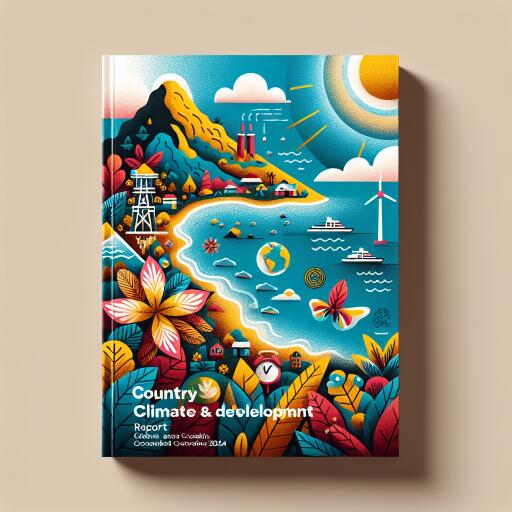
Dominica, Grenada, Saint Lucia, and Saint Vincent and the Grenadines: Country Climate and Development Report (October 2024) – Dominica
As climate change continues to threaten the Eastern Caribbean, the region faces both challenges and opportunities in its journey towards sustainable development. The latest findings highlight how Dominica, along with Grenada, Saint Lucia, and Saint Vincent and the Grenadines, can navigate these challenges while securing long-term growth and resilience. This comes from a recent analysis conducted by international entities in collaboration with the Organization of Eastern Caribbean States Commission (OECS).
The report sheds light on how climate change exacerbates existing developmental issues. For instance, by 2100, Saint Lucia could lose 34% of its sandy beaches due to rising sea levels. This, combined with higher temperatures, poses a major threat to the nation’s tourism-driven economy, with up to 57% of hotel revenue potentially at risk. Furthermore, projections suggest these countries will experience 22 additional days per year with temperatures exceeding 30° C by the turn of the century.
This comprehensive analysis extends beyond disaster forecasts and quantifies necessary investments against the backdrop of fiscal constraints and growth aspirations. It proposes strategic actions at both local and regional levels designed to mitigate climate impacts and safeguard development objectives.
One pivotal recommendation is creating a “resilient core,” a concept aimed at achieving Sustainable Development Goals while minimizing infrastructure damage and service disruptions when climate disasters occur. However, financing such initiatives involves significant costs, prompting the exploration of two distinct investment pathways.
Minister for Climate Resilience, Environment, and Renewable Energy, Kerryne James, notes, “Adopting this blueprint is pivotal for confronting vulnerabilities and fostering sustainable growth. It represents more than just an option for Grenada; it is a necessity for transformation.”
The report is not merely a document but a catalyst for action, systematically enumerating the needs and obstacles associated with financing them. It seeks to enhance the connectivity between climate actions and developmental goals, as embraced by OECS Commission’s Director General, Didacus Jules.
The call to action extends to governments, private sectors, and international partners to collaborate towards resilience building. Key recommendations emphasize investing in nature-based solutions and reducing reliance on fossil fuels, especially since sectors like energy, transport, and waste significantly contribute to emissions. Transitioning these sectors to low carbon models can substantially bolster resilience against climate impacts.
Enhancing resilience entails financial implications, which are addressed by considering high financing costs and exploring different potential investment pathways. This lays a definitive road map for these nations to follow in attaining not just sustainability but robust resilience as they move forward.
In conclusion, this report presents a synchronized effort to confront climate and developmental challenges through well-delineated pathways. It underscores the urgent requirement for cohesive strategies and robust partnerships aimed at enhancing the region’s adaptive capacities.
The initiative paves the way for expanded cooperation, urging further outreach to additional countries beyond the current report’s scope. By highlighting these crucial intersections and offering actionable insights, the Eastern Caribbean nations stand on firmer grounds from which to launch their sustainable futures.





Leave a Reply